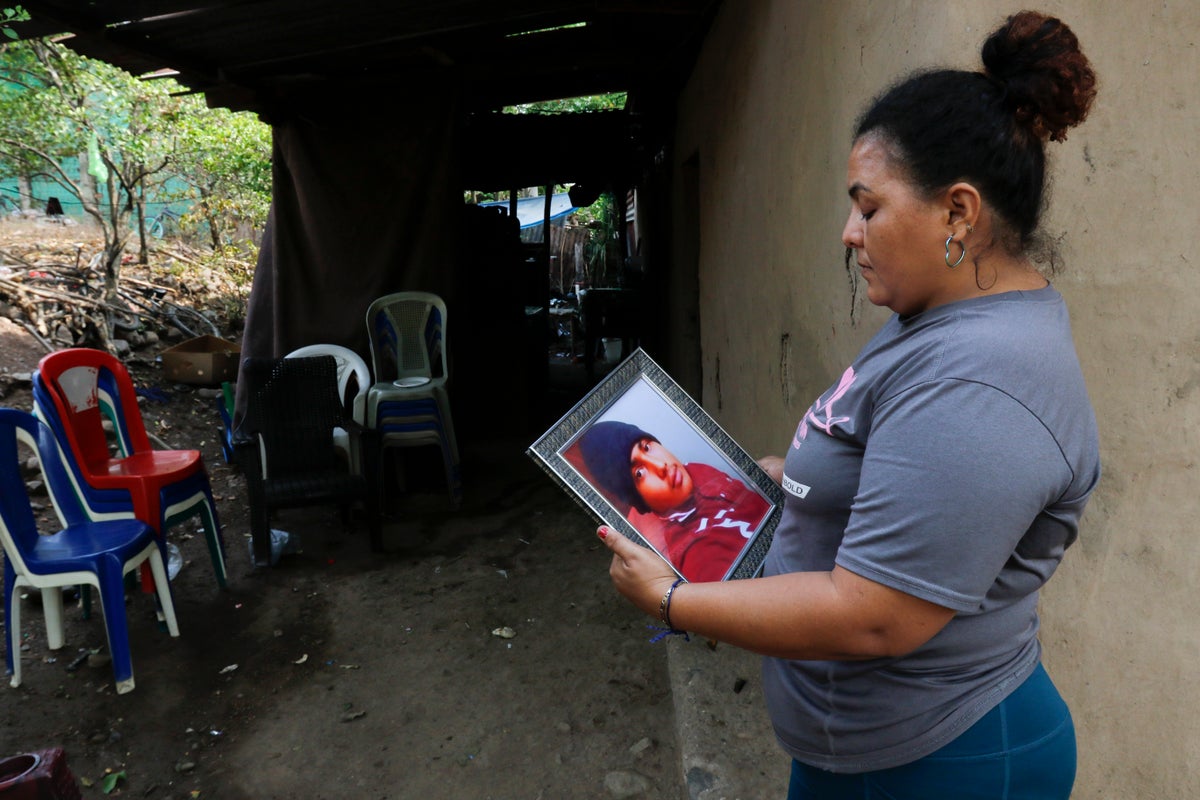
The mother of a 17-year-old Honduran migrant who died in U.S. custody said Saturday her son had epilepsy but showed no signs of being seriously ill before he left for the United States.
The death of Ángel Eduardo Maradiaga Espinoza at a holding center in Safety Harbor, Florida, on Wednesday underscored concerns about a strained immigration system as the Biden administration ends asylum restrictions known as Title 42.
His mother, Norma Saraí Espinoza Maradiaga, said that her son had had epilepsy since he was a child, but that his seizures were brief and not serious.
“He had epilepsy, but it wasn't an illness that threatened him, because he had had it since he was eight,” she said. “The longest a seizure would last was less than a minute. It seemed like it only hit him a little.”
Espinoza Maradiaga had told The Associated Press in a phone interview Friday that Ángel Eduardo left his hometown of Olanchito on April 25. He crossed the U.S.-Mexico border some days later, and on May 5 was referred to the U.S. Department of Health and Human Services, which operates longer-term facilities for minors who cross the border without a parent.
That same day, he spoke to his mother for the last time, she said.
“He told me he was in a shelter and not to worry because he was in the best hands,” she said. “We only spoke two minutes. I told him goodbye and wished him the best.”
Espinoza Maradiaga said she learned of her son's death first from one of his friends at the migrant shelter and then from a U.S. official who confirmed the friend's report.
“I want to clear up my son’s real cause of death,” she said.
“No one tells me anything. The anguish is killing me,” she added. “They say they are awaiting the autopsy results and don’t give me any other answer.”
No cause of death was immediately available nor were circumstances of any illness or medical treatment.
Ángel Eduardo had studied until eighth grade before leaving school to work, his mother said Saturday. Most recently he worked as a mechanic’s assistant. He had been a standout soccer player in his hometown in northern Honduras since he was 7, she said.
The teenager had hopes of reuniting with his father, who left Honduras for the U.S. years ago, and earning money to support her and two younger siblings still in Honduras, his mother said.
She said he left with her approval and with financial support from his father in the United States.
“Since he was 10 years old he wanted to live the American Dream to see his father and have a better life,” she said. “His idea was to help me. He told me that when he was in the United States he was going to change my life.”
The Department of Health and Human Services offered condeolences in a statement Friday and said a review of health care records was underway and a medical examiner was investigating the death.
The asylum restrictions under Title 42 expired Thursday, and President Joe Biden's administration installed new curbs on border crossers beginning Friday. Tens of thousands of people tried to cross the U.S.-Mexico border in the weeks before the expiration of Title 42, under which U.S. officials expelled many people but allowed exemptions for others, including minors unaccompanied by a parent.
This was the first known death of an immigrant minor in custody during the Biden administration. At least six young people died in U.S. custody during the Trump administration, which at times detained thousands of children above the system's capacity.
HHS operates long-term facilities to hold minors who cross the border without a parent until they can be placed with a sponsor. HHS facilities generally have beds as well as schooling and other activities for minors, unlike Border Patrol stations and detention sites in which detainees sometimes sleep on the floor in cells.
Advocates who oppose the detention of immigrant minors say HHS facilities are not suited to hold them for weeks or months, as sometimes happens.
More than 8,600 minors are now in HHS custody. That number may rise sharply in the coming weeks amid the shift in border policies as well as sharply rising trends of migration across the Western Hemisphere and the traditional spike in crossings during spring and summer.







